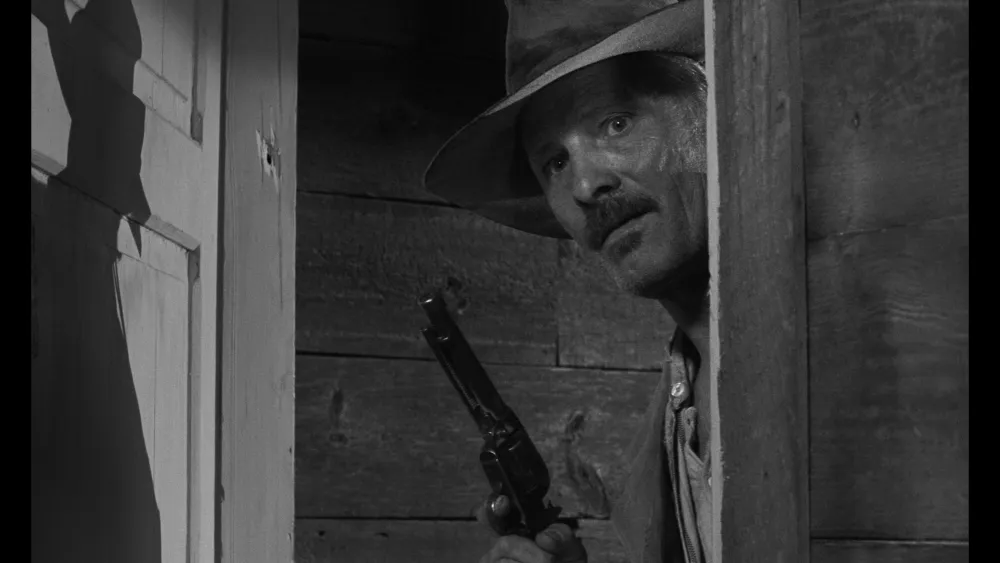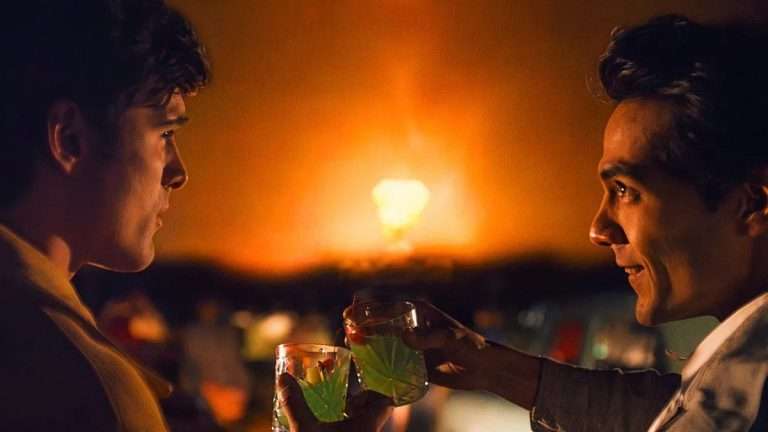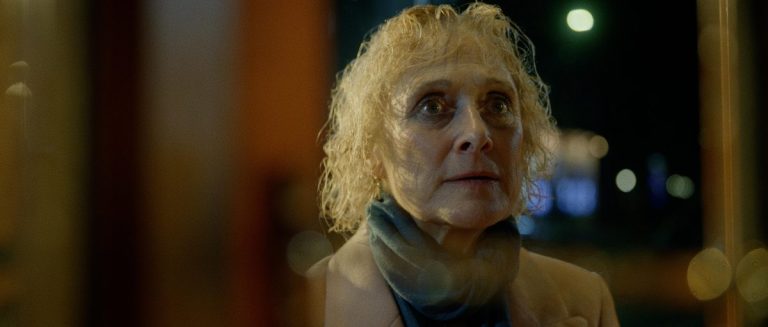Lisandro Alonso’s “Eureka” is a stupendous, formally audacious triptych exploration into the lives and attitudes towards the indigenous communities. The first section is a monochromatic riff on a Western, with Viggo Mortensen’s Murphy in search of his daughter. Alonso whips up a sinister atmosphere even while ringing us with an awareness of everything in the section being tongue-in-cheek. The story is playful and giddying in a delicious anti-climactic way, as the ‘hero’ doesn’t get the glory of securing his goal. The pleasure of victory and possession is denied.
Alonso thrusts us into the second narrative planted in the modern day with a cheeky sleight of hand. Seeped in drab realism, we are taken through a day in the life of a South Dakota police officer, Alaina (Alaina Clifford). The drudgery leaks through every scene. On reservation land, the native Americans mill on, in cognizance of the historical lack of access and cyclic disintegration. Alonso finds sly, inspired ways of threading together the fragmented strands. What’s admirable is he doesn’t force-fit them into a super-neat throughline.
The essence is retained across the three, even as there are varied tonal shifts and an expansion of the critique. “Eureka” is a sprawling, epic exploration that’s unafraid of tumbling into new terrain, dislodging previously established rhythms of storytelling, and knitting in an assortment of unexpected angles. This is a filmmaker who doesn’t give a damn about conventions. Alonso pursues freedom of spirit by telling stories about native subjugation, representation, and their changing, if at all, position with the passage of time.
“Eureka” flows into new pathways, gets interrupted, and feels rendered anew. How much have things morphed for the indigenous tribes over the decades? It seems the veneer has swapped its surface, but a core of disconnect and alienation from mainstream society remains stringent. What is the point at which assimilation and absorption turn into the erasure of their own identity and expression? Hybridization is a process that demands care, respect, and steady attentiveness. Alaina is a diligent police officer, but her job also conflicts with the interests of her own people.

How can she uphold the needs of her people when her job necessitates turning them behind bars? It’s an unenviable position that weighs heavy on her. Alonso zeroes in on the daily bureaucratic and official specifics of getting work done on the reservation. The nights blur into one another. There’s the usual bunch of addict cases, families teetering on breakdown. Alaina’s work essentially becomes that of continually checking in on them. It’s a life of abuse and waste that she has to regularly monitor and report on in case of any slip-ups.
This middle section is the chunk of the film that’s most minute and rigorously specific. Albeit Alonso never hastens scenes, this unfolds most luxuriantly. Disillusionment and muted despair rent the air. Alaina’s niece, Sadie (Sadie Lapointe), yearns for a life outside the reservation. Staying here engenders a near-certainty of doom and oblivion. The film doesn’t pinpoint where her unease stems from, but we witness it all around the land and its people either collapsing or barely scraping by. Sadie is unable to perceive herself and any future within the bounds of this nihilistic arena.
So we escape with her. Alonso pulls off another dazzling bridge, way back into the past. A bird becomes a metaphysical connector to the Amazonian rainforest in Brazil. There’s talk of dreams and people digging for things that can turn their lives around. But what is the price of this quest? At which point does the constant dreaming become corrosive and taper off into futility? Is there any chance of reconstruction? Or is the trajectory of Indigenous lives firmly fixed?
“Eureka” pokes into destiny and fate, the interstices between the past, present, and future. Time rolls on, circumstances stay unabated. Only a slight register of difference in avatars can be speculated on. Alonso’s storytelling brims with mystery, the elusive, but it never feels unanchored. Beneath the aura of enigma that pops up every now and then lies a rich epistemic consciousness.




![The Great Movement [2021]: ‘Venice’ Review – A character study of the ignored individuals of a city](https://79468c92.delivery.rocketcdn.me/wp-content/uploads/2021/09/The-Great-Movement-El-Gran-Movimiento-1-768x432.jpeg)



![Manhunter [1986] Review – An Incredibly Stylized and Atypical Take on the ‘Hannibal Lecter’ Novel](https://79468c92.delivery.rocketcdn.me/wp-content/uploads/2020/02/Manhunter-1986-768x528.jpg)